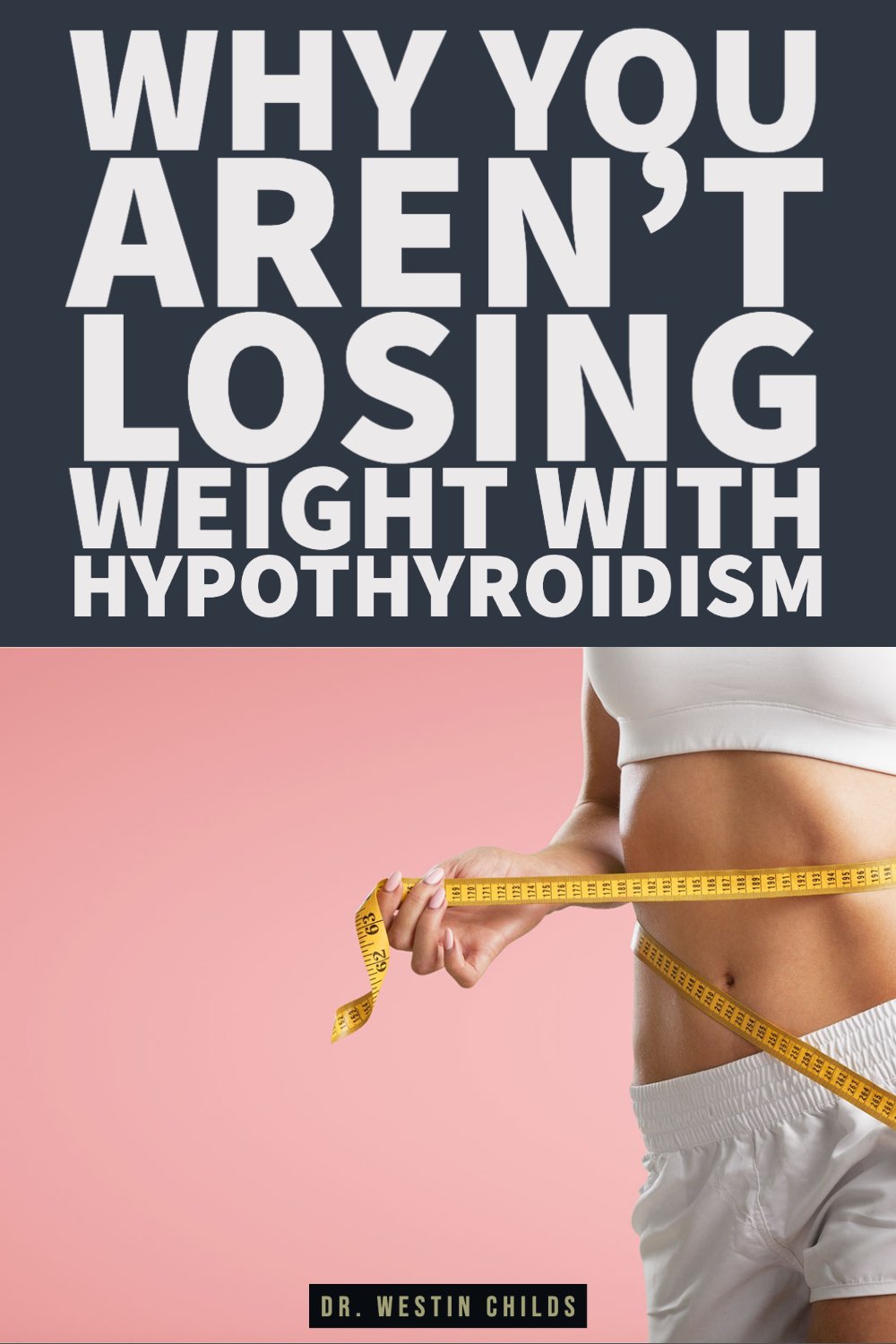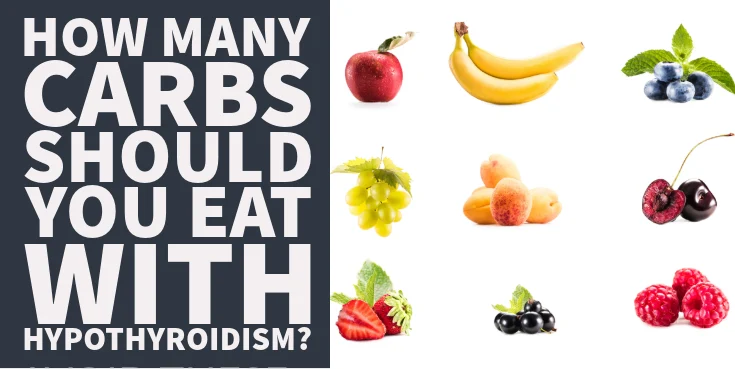Does having hypothyroidism mean that you have to accept being overweight forever?
Not at all.
The reality is that you can have a thyroid problem AND have a normal weight.
But getting to that point means that you’ll have to go against the grain and against standard advice.
This is because the standard recommendations of ‘eat less and exercise more’ often have a reverse effect on thyroid patients.
Instead of helping you lose weight, these treatments can actually make your thyroid WORSE which means it will be more difficult for you to lose weight down the road.
If that advice doesn’t work then what will?
That’s exactly what we are going to talk about but first one quick disclaimer:
The information on weight loss that I’m about to discuss applies to ANYONE with low thyroid function including hypothyroidism, Hashimoto’s, those without a thyroid, and those with radioactive iodine ablation.
With that in mind, let’s talk about the right way to lose weight with hypothyroidism starting right now:
DOWNLOAD FREE RESOURCES
Foods to Avoid if you Have Thyroid Problems:
I’ve found that these 10 foods cause the most problems for thyroid patients. Learn which foods you should avoid if you have thyroid disease of any type.
The Complete List of Thyroid Lab tests:
The list includes optimal ranges, normal ranges, and the complete list of tests you need to diagnose and manage thyroid disease correctly!
Step #1. Start with a fresh set of thyroid lab tests.
This step is #1 for a reason: if you don’t get a set of labs in the beginning you’ll have no way to see if what you are doing is working!
Getting labs will also give you a lot of information about the current status of your thyroid.
Believe it or not, a lot of hypothyroid patients are undertreated and have no idea that this is the case.
As you will soon find out, the status of your thyroid, called thyroid function, is incredibly important for your ability to lose weight.
In addition, it makes a lot of sense to get an idea of how well your thyroid is working BEFORE you start making any changes.
Starting with a fresh set of labs can also give your helpful information on aspects of thyroid function often ignored by doctors like your cellular sensitivity and your ability to activate thyroid T4 into T3.
When it comes to lab testing, the standard TSH is not going to cut it either.
At a minimum, you will want to get the following lab tests:
- TSH
- Free T3
- Free T4
- Thyroid antibodies (both thyroglobulin and thyroid peroxidase)
- And sometimes reverse T3, though this is not required
These lab tests will serve as your baseline results that you can keep an eye on as you lose weight and improve your thyroid.
Step #2. Focus on thyroid function and thyroid medication.
This is probably the MOST important step on this entire list.
That’s because if you do not pay attention to thyroid function, there’s a very high chance you’re not going to lose any significant amount of weight.
This is because your thyroid is one of the primary regulators of your metabolism (1).
Imagine trying to lose weight with a 20% decrease in your metabolism that could be easily fixed by adjusting your thyroid medication upward.
Do you think it’s easier to eat 20% less or exercise 20% more? Or just adjust your thyroid medication to make up the difference.
Obviously, adjusting your thyroid medication is FAR easier and FAR more effective.
Getting your thyroid lab tests first can help you understand how well your thyroid is currently functioning and whether or not you need to make any changes.
When it comes to thyroid medications and weight loss, some are better than others.
The two least effective thyroid medications for weight loss are levothyroxine and Synthroid.
The two most effective thyroid medications for weight loss are cytomel and liothyronine.
Even though this is the case, your individual case may vary and it’s more important to figure out what your body needs than to randomly take different medications.
And the way to figure this out is by getting your labs tested as we discussed in step #1.
But do realize that your thyroid medication and dose matter when it comes to your ability to lose weight.
We know this from studies that show that patients who switch thyroid medications see weight loss that occurs without any other changes (2).
Step #3. Eat for your thyroid!
I hate to be the bearer of bad news but as a thyroid patient, you are just going to have to be more strict about your diet compared to the average person.
This doesn’t mean you won’t be able to indulge or enjoy life, but instead of having a diet that is 80% healthy and 20% fun, you’ll need to do something more like 90% healthy and 10% fun.
Eating for your thyroid also means that you’ll need to avoid certain types of foods and eat more of other types of foods.
This has to do with the impact that certain foods have on your thyroid which may ultimately make your weight loss efforts less effective.
Here are a few tips to keep in mind:
Food quality: The goal here is to consume as many fresh, whole foods as possible.
It should go without saying but you should avoid fast foods and heavily processed foods.

Food quantity: Cutting your calories is a very bad idea for thyroid patients because it can lead to decreased thyroid conversion (3).
Focus on eating until you are full instead of counting your calories.
Protein intake: There is a strong connection between muscle mass and thyroid function so protein intake is very important.
Aim to get at least 60 grams of animal protein daily or 100 grams of plant-based protein from whole foods daily to ensure your muscles have what they need for maintenance and growth.
Carbohydrate intake: Both high carbohydrate diets and low carbohydrate diets can be harmful to thyroid patients so your carb intake should be somewhere in the middle (4).
Don’t be afraid of healthy sources of carbohydrates like fruits and vegetables.
Nutrient intake: For thyroid function, you’ll want to eat foods that are rich in zinc, selenium, magnesium, and iodine.
I have other videos and articles which discuss these foods in more detail but you can also just use Google to find them.
The best way to approach your diet is to take all of these factors into account and find what works for you personally and what is sustainable long-term.
Want a simple done-for-you diet that you can follow for your thyroid? Then check out my Perfect Thyroid Diet.
Step #4. Improve your gut health.
Your gut is a major activator of T4 thyroid hormone.
It’s also the site where thyroid medication and other nutrients from food and supplements get absorbed.
Thyroid patients frequently have issues with their gut due to the impact thyroid dysfunction has on gut motility (5).
Treating your gut can do a lot for your thyroid just like treating your thyroid can do a lot for your gut.
The key is not one over the other but both at the same time.
Do not listen to anyone who says you can fix your thyroid by solely focusing on your gut. It’s just not true.
Yes, it will help, but more will be required.
If you don’t know where to start then using a combination of probiotics and prebiotics is usually very helpful.
Step #5. Manage your stress.
Based on my experience, stress is probably the single biggest trigger of thyroid disease out there.
I’ve lost count of the number of people who have told me that their thyroid condition started immediately after an incredibly stressful life event.
But you don’t need a big stressor to cause thyroid problems or make your thyroid worse.
Small everyday stressors can add up as well.
And because of the connection between cortisol and your thyroid, your body will be less resilient to stress.
Practicing stress reduction techniques like yoga (6) or meditation can do a lot for your thyroid and your ability to lose weight.
My personal favorite way to manage stress is with the use of adrenal adaptogens.
I take Rhodiola just about every day for this reason.
Step #6. Exercise regularly and stay consistent!
You simply won’t be able to reach your target weight without at least some exercise.
I know it’s hard to exercise if you have a thyroid problem so you don’t have to go crazy here but you do need to do something.
That something should bring your heart rate to about 50-70% of your maximal heart rate (7) and keep it there for at least 20 minutes.
This simple act is enough to increase your thyroid function, improve your thyroid lab tests, AND help you burn more calories in the process.
It also puts a gentle stimulus on your muscles which promotes muscle growth and better metabolism long-term.
Be careful not to overtrain, though, as that can make your thyroid condition worse as well!
Your Next Steps
There’s a lot that you can do by yourself but remember that each person has a different degree of thyroid dysfunction.
What does this mean for you?
It means that for some people losing weight will be easier than for others.
It means that some people are going to require more aggressive treatments than others.
It means that some people will be able to get away with making minimal changes to their diet and other thyroid patients will need to be strict all of the time.
This variance among thyroid patients and their needed treatments can be confusing but it doesn’t have to be.
If you’re looking to see an example of how other thyroid patients have lost weight then I’d recommend checking out these case studies:
- Over 50 pounds lost with Hashimoto’s
- Combining Natural Desiccated Thyroid with T3 for weight loss
- How Kathy lost 42 pounds using NDT
- How Ruth reversed her diabetes using T3 and fasting
This will give you an idea of what types of hormones, medications, diets, supplements, and more can help you get to your desired weight.
Now I want to hear from you:
Do you have hypothyroidism and are you struggling to lose weight?
Do you feel that your issues are primarily related to your thyroid or to some other condition?
Have you tried all of the steps listed above? Have they worked for you? Why or why not?
Leave your questions or comments below!
Scientific References
#1. ncbi.nlm.nih.gov/books/NBK500006/
#2. pubmed.ncbi.nlm.nih.gov/23539727/
#3. ncbi.nlm.nih.gov/pmc/articles/PMC6195261/
#4. ncbi.nlm.nih.gov/pmc/articles/PMC9165850/
#5. ncbi.nlm.nih.gov/pmc/articles/PMC7353203/
#6. ncbi.nlm.nih.gov/pmc/articles/PMC8240110/
#7. pubmed.ncbi.nlm.nih.gov/16380698/









